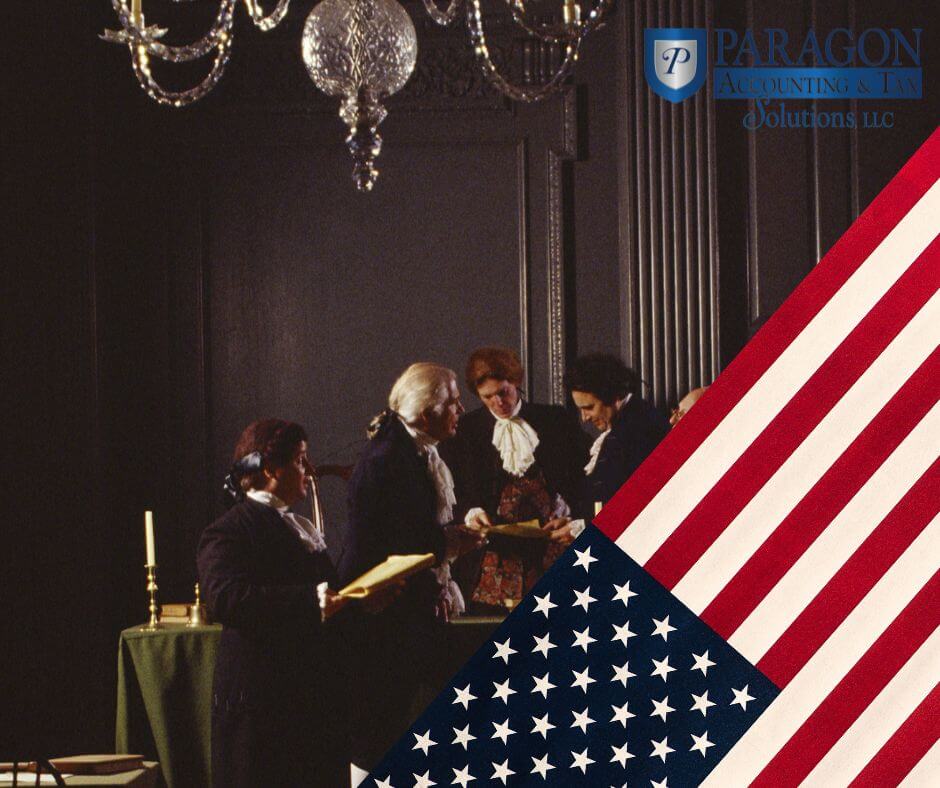Unintended Consequences

This week, we celebrate the 247th anniversary of America’s Declaration of Independence—a milestone of human imagination and courage. The 56 men who mutually pledged their lives, their fortunes, and their sacred honor wound up launching the world’s greatest experiment in democracy. And they hoped Independence Day would become something special. John Adams wrote that “It ought to be solemnized with Pomp and Parade, with Shews, Games, Sports, Guns, Bells, Bonfires and Illuminations from one End of this Continent to the other from this Time forward forever more.” Do you think he had any idea those “Illuminations” would come to include cheap Chinese fireworks and ESPN coverage of the Nathan’s Hot Dog Eating Contest?
As Thomas Jefferson’s stirring prose tells us, “The history of the present King of Great Britain is a history of repeated injuries and usurpations, all having in direct object the establishment of an absolute tyranny over these states.” Chief among those offenses: “Imposing Taxes on us without our Consent.” Read that carefully. The colonists weren’t objecting to taxes per se. They were objecting to taxation without representation.
We think of “no taxation without representation” as a particularly American rallying cry. But the concept dates back all the way to the 1215 Magna Carta. In 1634, a previous king—Charles I—extended the “ship money” tax (which originally required coastal towns to furnish ships in time of war, but evolved into a simple cash shakedown) to every county in England. That move contributed to the English Civil War of 1642-1652. And the English Bill of Rights of 1689 explicitly prohibited the King from imposing taxes without parliamentary consent.
As the American colonies grew richer and more populous, politicians on both sides of the Atlantic debated adding representatives from America (as well as the East Indies, Canada, and Ireland) to the House of Commons. That group included Benjamin Franklin and John Adams on our side, as well as William Pitt the Elder and Prime Minister George Grenville on the other. Sadly, for England at least—but fortunately for us—none of those debates led to concrete proposals that might have prevented rebellion.
By the time the founders gathered in Philadelphia to declare independence, England had socked the colonies with two particularly offensive taxes. The Stamp Act of 1765 required Americans to print their legal documents, magazines, newspapers, and playing cards on special stamped paper from London. (The contemporary equivalent might be a half-pence levy for every tweet and a shilling for every selfie.) The Townshend Acts, which placed indirect levies on glass, lead, paint, paper, and tea, set the stage for the Boston Tea Party.
Meanwhile, England had been raising most of its domestic revenue from taxes on land, malted grain for beer and whiskey, and windows. There was no income tax until well after we left. Prime Minister William Pitt the Younger imposed the first one in 1799, at a rate of two old pence per pound (1/120) on incomes over £60, to pay for the upcoming Napoleonic Wars.
If the founding fathers could see today’s Form 1040, they would shake their heads in disbelief. Maybe even disgust. But the declaration they signed during that heady summer of 1776 laid the democratic foundation for today’s internal revenue code. (It’s too bad that so many members of Congress practicing that democracy seem to be running for office instead of going to therapy). And it raises the valid question of whether taxation with representation is all that hot! Fortunately, you don’t need to raise arms against the government to pay the least amount allowed. Just call us once the fireworks have stopped ringing in your ears.
